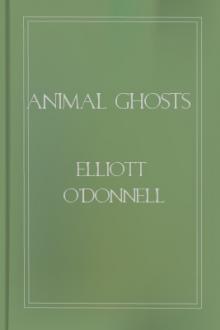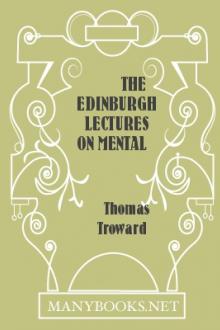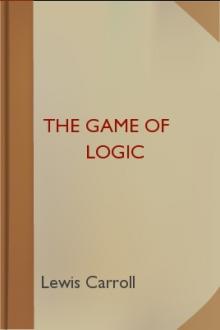Genre Philosophy. Page - 14
No registration or authorisation! And it is all for free!

the flavour ofSocratic irony in the narrative of Xenophon.The Apology or Platonic defence of Socrates is divided into three parts:1st. The defence properly so called; 2nd. The shorter address in mitigationof the penalty; 3rd. The last words of prophetic rebuke and exhortation. The first part commences with an apology for his colloquial style; he is,as he has always been, the enemy of rhetoric, and knows of no rhetoric buttruth; he will not falsify his character by making a speech. Then

led to further experiments at a distance between Miss Telbin and myself.AT 7 P.M. I drew the following diagram [Illustration] AT 7 P.M. Miss TELBIN'S drawings [Illustration] AT 7:10 P.M. I fixed my attention on a flower [Illustration] AT 7:10 P.M. Miss TELBIN obtained several incorrect scrawls, but amongst them one under which she had written the words [Illustration] "First impression" AT 7:20 P.M. I looked at a pair of opera glasses, at which I gazed first lengthwise [Illustration]

there was none of that lurid glow attached to it, which I subsequently learned is almost inseparable from spirit phenomena seen under similar conditions."For some seconds, I was too overcome with terror to move, but my faculties at length reasserting themselves, I turned round and flew to the other wing of the house with the utmost precipitation. "One would have thought that after these experiences nothing would have induced me to have run the risk of another such encounter, yet only

fortunately, anylacking quality can be evolved and if one does not possess these threenecessities his first work is to create them. These three things arean ardent desire, an iron will and an alert intelligence. Why arethese three qualifications essential to success and what purpose dothey serve?Desire is nature's motor power--the propulsive force that pusheseverything forward in its evolution. It is desire that stimulates toaction. Desire drives the animal into the activities that evolve

entity follows your awareness, and since you are ultimately everything, it can and will identify with whatever is in your awareness. This is the danger of a teaching that doesn't point to or convey the existence of true nature. If something is not even talked about or considered, it is much less likely that awareness will notice it, and also much less likely that identity will ultimately shift into it. This is why it is important to teach and explore the nature of all of the qualities of

o the standpoint where he is able to realize that such a law exists. His evolution in the future must be by conscious participation in the great work, and this can only be effected by his own individual intelligence and effort. It is a process of intelligent growth. No one else can grow for us: we must each grow for ourselves; and this intelligent growth consists in our increasing recognition of the universal law, which has brought us as far as we have yet got, and of our own individual

to laws of the faculty of desire. The faculty of DESIRE is the being's faculty of becoming by means of its ideas the cause of the actual existence of the objects of these ideas. PLEASURE is the idea of the agreement of the object, or the action with the subjective conditions of life, i.e., with the faculty of causality of an idea in respect of the actuality of its object (or with the determination of the forces of the subject to action which produces it). I have no further need for the purposes

closely resemble that of a refined product of a coarse idea, and the only method of deciding between degeneration and evolution would be the examination, if possible, of intermediate and remote ancestors. The evidence brought forward by believers in the Wisdom is of this kind. They allege: that the Founders of religions, judged by the records of their teachings, were far above the level of average humanity; that the Scriptures of religions contain moral precepts, sublime ideals, poetical

